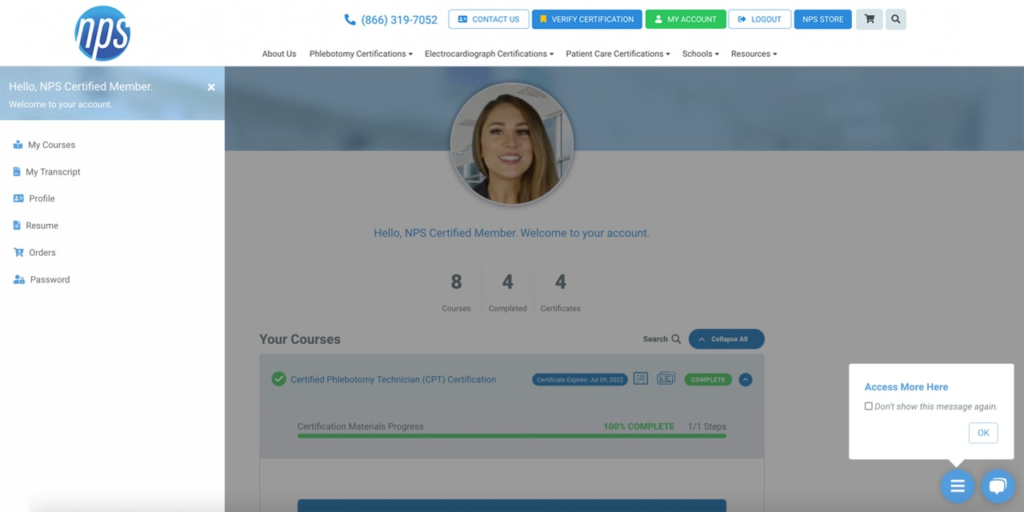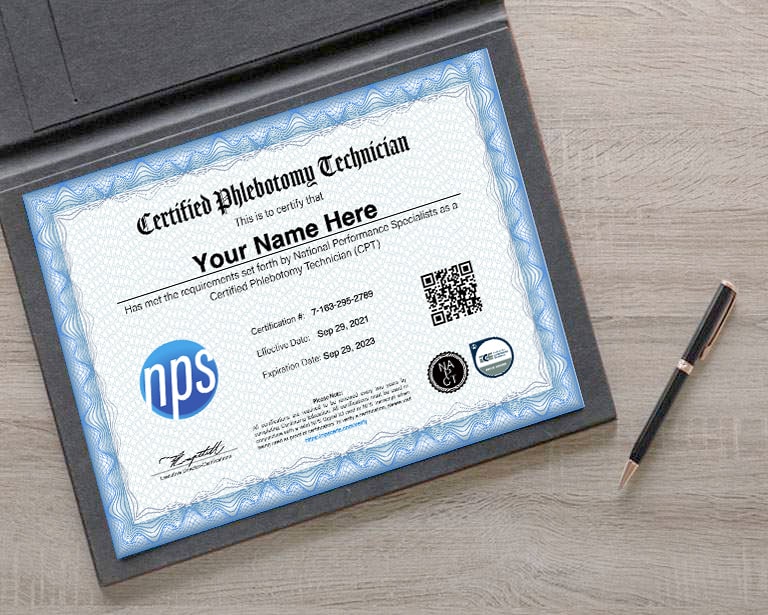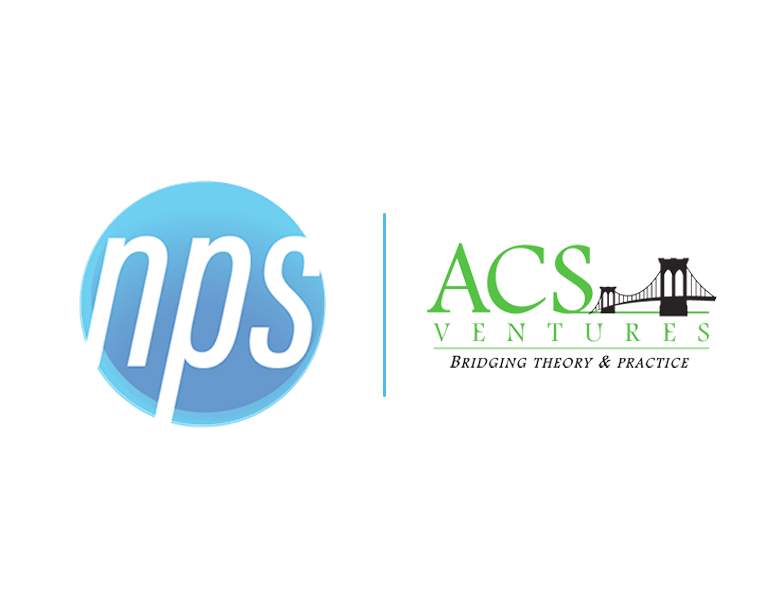– Understanding the difference between these two educational outcomes can make the difference in employment opportunities for phlebotomy technicians –
One of the great things about entering the phlebotomy field is that it does not require a typical four-year degree path, which can be time consuming and cost-prohibitive to many. This does not mean that these allied health professionals lack the education and training required to perform high-quality job functions. Instead, the path to a career as a phlebotomist incorporates a blend of content review, hands-on training, and – in most cases – third-party verification in competency.
Frustratingly, the differences in qualification and requirements can become a bit muddied simply by the terms used in the industry to label these factors. Here, we’re going to untangle the difference between a training certificate and a national certification as well as what they can mean to your career goals.
Phlebotomy Training Program Certificates
To get started on the path to becoming a phlebotomist, all aspiring allied health professionals must take and successfully complete a training program. These courses can range from a few months to a year to complete, depending on the program itself.
Many vocational schools, community colleges, and hospitals offer these educational programs, which cover the basics in patient care, blood draws, proper handling, and medical laboratory testing. There are also a wide variety of private schools, workshops, and institutes that offer this first phase of phlebotomy education.
To find a program, you can search for “phlebotomy training programs near me”. Be sure to explore the school’s reviews, accreditation, and any and all costs before signing up.
At the end of the program, students are awarded a Certificate of Completion that they can use as proof that they successfully finished all of the course requirements including clinical hours. In some cases, this certificate is all a newly minted phlebotomist needs to venture out and get their first job in the field. However, competition may be stiff, and employers are often looking for additional verification that they’re hiring top talent for their teams. This is where national certification comes into play.
Phlebotomy and National Certification
After earning a certificate, a phlebotomist can go on to sit for and take the national exam. This test is designed to test the student’s comprehension across everything learned during their training program. To sit for the exam, they must have completed the required number of clinical hours, including blood draws, and be able to present proof of their certificate.
National certification exams are administered by agencies, or independent credentialing companies, that operate separately from training programs. This helps to ensure the elimination of bias from the evaluation. This way, employers who see a candidate with a national certification can be sure that the applicant is competent and qualified for the job.
Upon completing the national certification with a passing score, the student is given a certification and added to the National Registry. This can be shared with future employers. The national certification lasts for two years, at which point phlebotomists can renew their certification by sitting for another exam.
How to Get Nationally Certified as a Phlebotomy Technician
To actually get nationally certified, you’ll need to pass the national exam. When you’re choosing a training program at the start of your phlebotomy journey, ask the instructors whether they are affiliated with a national certification agency. Some, like those partnered with NPS, may offer national certification as part of their program package.
If not, you can look for a national certification agency online. The best agencies are those that provide everything you need to succeed with the exam. Watch out for hidden fees and upcharges for study aids. You should also check whether the agency itself is accredited. This will tell you whether the quality of study materials and ability to assess your competency has been verified by an outside organization, adding further value and respectability to your national certification.
A Note About State Licensure
The states of California and Louisiana have additional requirements for phlebotomy professionals. You may also need to meet different certification levels or obtain a license to practice. You should always check with the requirements in your state before pursuing a certificate or certification to make sure you are starting down the proper path for you.

All About National Certification from NPS
National Performance Specialists stands out from other agencies that offer national certification by bundling together everything you need to achieve your educational goals. Developed with an exclusive eLearning platform, you can access study materials, practice tests, and even take the national exam online – whenever you’re ready and wherever you happen to be at the time. No driving to a testing center and struggling to fit it into your schedule.
Once you have your training program certificate, you can sign up for an NPS account and get started. You’ll be able to manage it all from a single portal including:
- Study modules and content to review anytime, anywhere
- Unlimited practice exams that measure your progress
- One final exam attempt to get nationally certified
- Instant digital proof of certification
- Digital ID cards for download and smartphone use
- Resume revision and job placement assistance
And as you apply for phlebotomy jobs, you can include that you’re national certified through NPS and include a copy of your certification. Employers can use your ID number to confirm your qualifications in the National Registry, helping you to stand out in a competitive job market.
Become a Certified Phlebotomy Technician with NPS Today!
Register with NPS for your CPT certification today. NPS offers Certified Phlebotomy Technician (CPT) Certification for one flat fee with everything you need to take your career to the next level.




